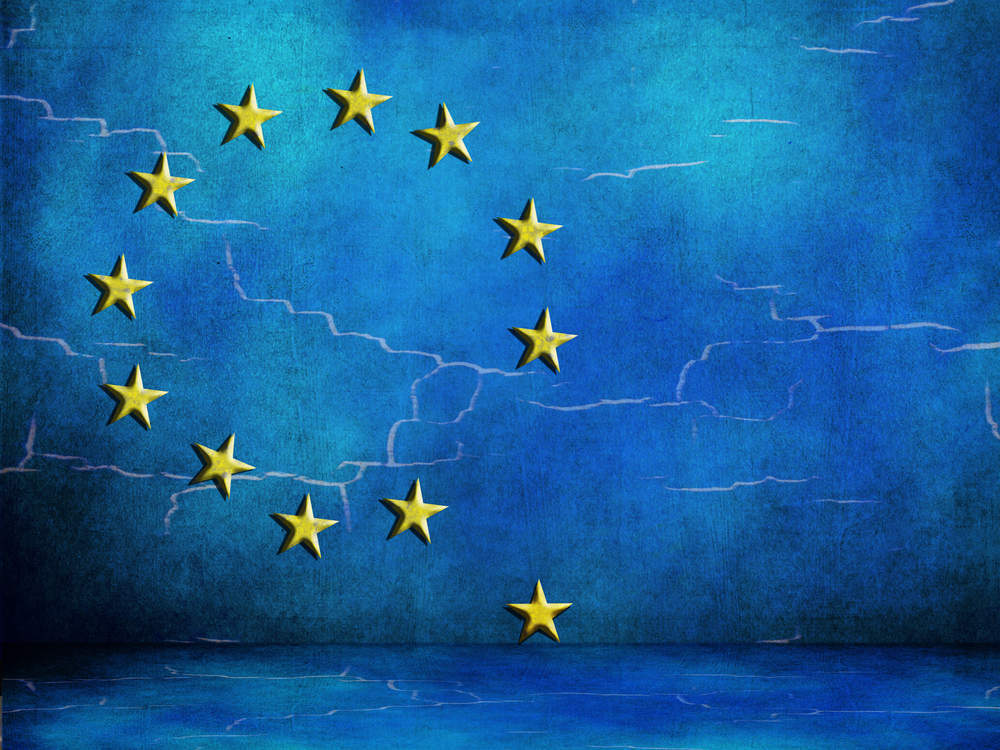Towards the latter half of 2016, the future of the EU economy looked bleak.
The UK had voted and decided to leave the EU, anti-EU parties were topping the polls in many European countries, and the election of Donald Trump further suggested protectionist policies were again coming to the fore worldwide.
Fast forward eight months, and after election victories for pro-EU parties in Austria, the Netherlands and France, the future of the EU looks to be more secure.
However, despite the economic upturn, the region still faces substantial challenges in the coming years, and levels of confidence should be tempered.
The gloom has lifted somewhat…
When unemployment rates rose sharply after the EU was hit by the global financial crisis of 2008 and the euro-zone crisis of 2010, anti-EU sentiment grew in many member states.
This development culminated in June 2016, when 52 percent of the British electorate voted to leave the EU – making the UK the first country ever to do this. However, since then, the picture across Europe has changed substantially.
How well do you really know your competitors?
Access the most comprehensive Company Profiles on the market, powered by GlobalData. Save hours of research. Gain competitive edge.

Thank you!
Your download email will arrive shortly
Not ready to buy yet? Download a free sample
We are confident about the unique quality of our Company Profiles. However, we want you to make the most beneficial decision for your business, so we offer a free sample that you can download by submitting the below form
By GlobalDataAlexander Van Der Bellen, a pro-European politician with links to the Green Party, won the presidential poll in Austria, while parliamentary elections in the Netherlands returned incumbent Prime Minister Mark Rutte’s liberal party as the strongest political force (although a government has still not been formed).
Far-right Marine Le Pen then lost the presidential election run-off in France and was defeated by the centrist Emmanuel Macron, whose pro-EU En Marche party won a landslide victory in the June 2017 parliamentary vote.
Economic conditions in the region are improving, with real GDP growing in the first quarter of 2017 across all 28 EU member states for the first time since the financial crisis. Forward-looking indicators also point towards a further upturn in the quarters ahead.
At the same time, labour market conditions are on the up, with the harmonised unemployment rate in the EU-28 having dropped to 7.7 percent in June, the lowest reading since late 2008.
The euro has responded to the improving economic conditions and the decline in political risk, appreciating substantially in recent months to reach a 33-month high in early September 2017.
Dun & Bradstreet data shows a fall in insolvency risk in most countries in the region, with payments performance also improving, and the Economist recently suggested that Brexit does not appear to be curtailing business investment plans.
Although there is now a brighter economic outlook, combined with political developments since late 2016, the EU’s long-term survival is not yet guaranteed, as the region faces at least three substantial challenges in the coming quarters.
…but challenges lie ahead
First, the EU must find a response to the push for more nationalistic policies in Central Europe – notably in Poland and Hungary. Until now, the EU has had no suitable means for penalising countries that have violated EU-set rules.
As any change to the EU treaties would require a unanimous decision, it seems likely that anti-EU governments in Poland and Hungary will be able to continue to undermine the EU’s authority.
Second, regional differences in the speed of recovery remain considerable, with unemployment in Spain and Greece still at unsustainably high levels – 17.1 percent and 21.2 percent respectively – in June 2017.
In Greece, the excessive level of government debt stock is also a source of concern, and a debt-relief process seems inevitable (albeit heavily opposed by states such as Germany, Austria, Finland and the Netherlands).
Finally, the upcoming parliamentary election in Italy in the early half of 2018 will be closely monitored by many.
If anti-austerity and anti-EU parties such as the Five Star Movement and the Northern League come to power in the EU’s fourth-largest economy, concerns about the survival of the euro zone and the wider EU would quickly re-ignite.
EU bailout funds would be too small to ring-fence the problem, and the crisis could easily spread to other Mediterranean EU countries.
All considered, the baseline scenario is not a gloomy outcome for the EU economy.
For the time being, we are optimistic that the economic problems the Brexit vote created for the UK will work as a deterrent against future EU exits, while the ongoing economic recovery will spur a further and gradual improvement in EU sentiment.
We expect both the EU and the euro zone to survive for the foreseeable future.







